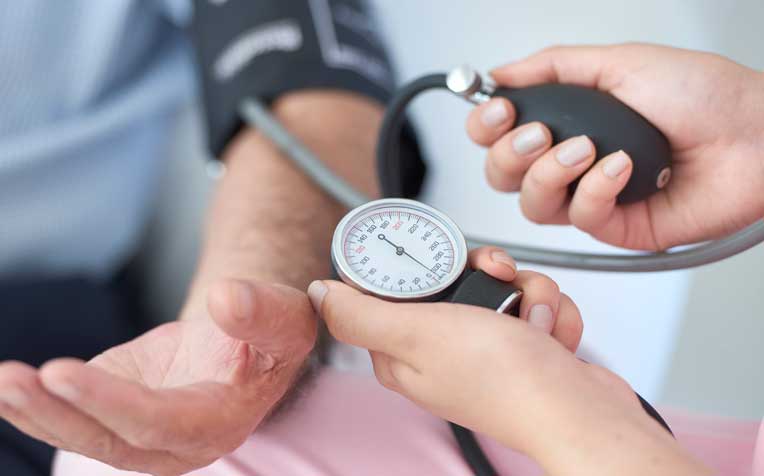HealthXchange will NEVER ask you to transfer money over a call. If in doubt, call the 24/7 ScamShield helpline at 1799, or visit the ScamShield website at www.scamshield.gov.sg.
Cardiac Rehabilitation: Success Stories

Blood pressure, glucose and cholesterol levels help determine the success of the cardiac rehab programme.
How is success measured?
The programme’s success is linked to how well the cardiac risk factors are controlled. This includes tracking the patient’s blood pressure, glucose and cholesterol levels.
NHCS conducted a retrospective audit on 1445 patients who completed three months of cardiac rehabilitation between 1999 – 2004, measuring their blood pressure before and after the programme. While the entire cohort showed a modest 4 mmHg drop in systolic BP and diastolic BP drop of 1 mmHg, 182 patients who were identified as poorly controlled at the time of enrolment had significant decreases. Their systolic BP decreased 19.3 mmHg while diastolic BP dropped 12.7 mmHg. This effect was independent of medications as they did not have any alteration in pharmacotherapy during the three months they underwent cardiac rehabilitation.
“This change was statistically significant,” explains Dr Tan Swee Yaw, Senior Consultant, Department of Cardiology and Director, Cardiovascular Rehabilitation and Preventive Cardiology, NHCS, “It shows that cardiac rehabilitation can improve blood pressure control. Other studies have shown that cardiac rehabilitation can lead to a corresponding reduction in mortality risk of up to 25 per cent.”
Success stories of the cardiac rehabilitation programme
Dr Tan shares an anecdote of one of his patients, a man in his 50s who had an extremely poor heart function. The patient struggled with walking even short distances when Dr Tan first met him. The patient made good progress in the programme. When he was tested again after two years, he could actually run two kilometres.
“This is probably a combination of his own hard work and the medications he was prescribed,” Dr Tan says. “But it shows that in some patients, capacity can improve dramatically if all the factors are right. The right medication, the right exercise programme and the right risk factor control can really benefit patients.”
After graduating from the cardiac rehab programme, patients go on to other places to exercise. They even form groups with other patients and exercise together at a gym or a park. “One of the great things about the programme is that patients make a lot of friends. They help each other so that they are motivated to continue,” he says.
Ref: S13
Contributed by
Related Articles
Conditions & Treatments
Public Events
Get the Health Buddy App
© 2025 SingHealth Group. All Rights Reserved.


















 Get it on Google Play
Get it on Google Play